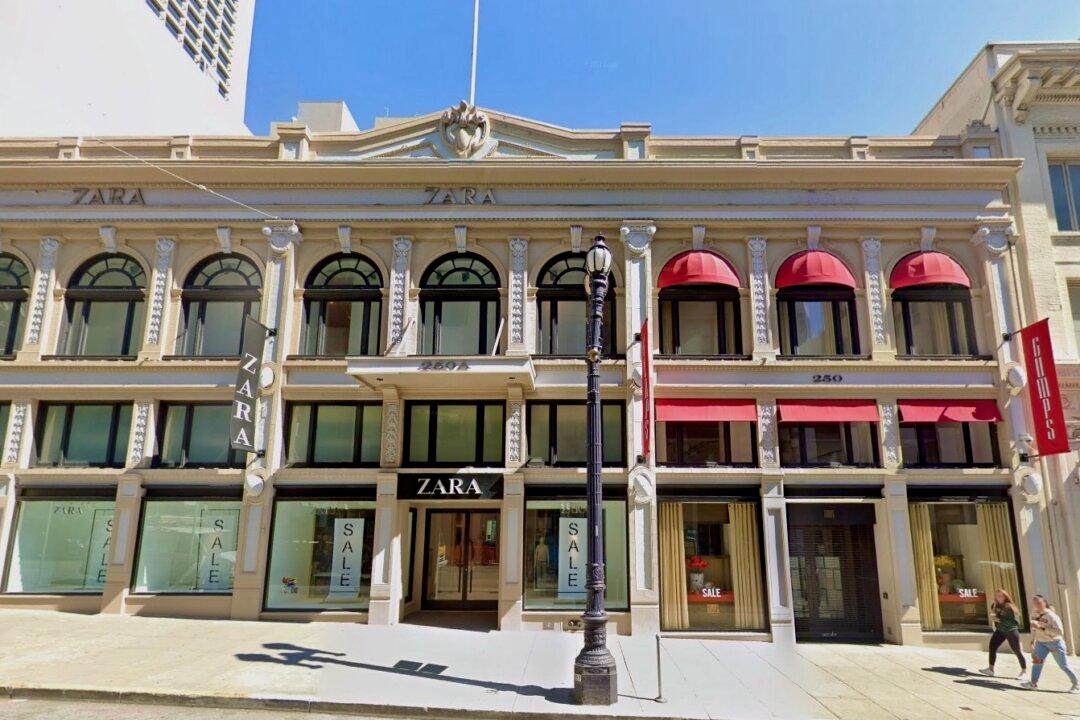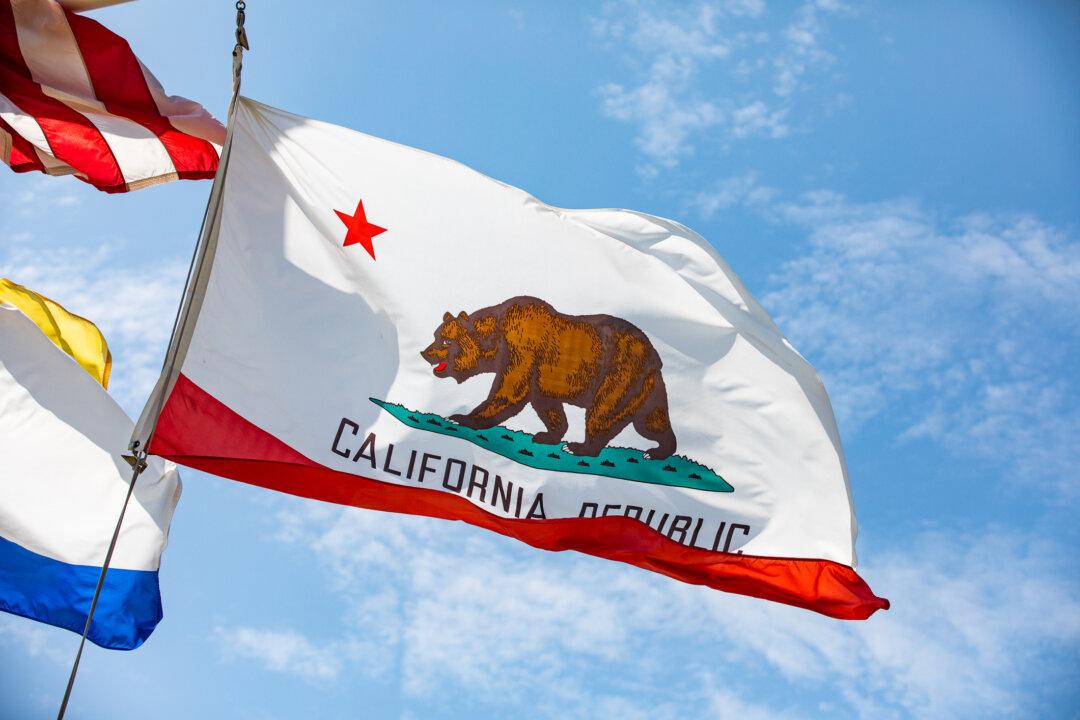Gump’s, a historic San Francisco luxury retailer, which opened in 1861, could shut its doors citing the city’s deteriorating homelessness crisis and an unfavorable business climate.
The owner of the store, John Chachas, wrote an open letter to California Gov. Gavin Newsom, Mayor London Breed, and other political leaders calling for a change to the city’s “failed public policies” in a full-page ad published in August in the San Francisco Chronicle.





